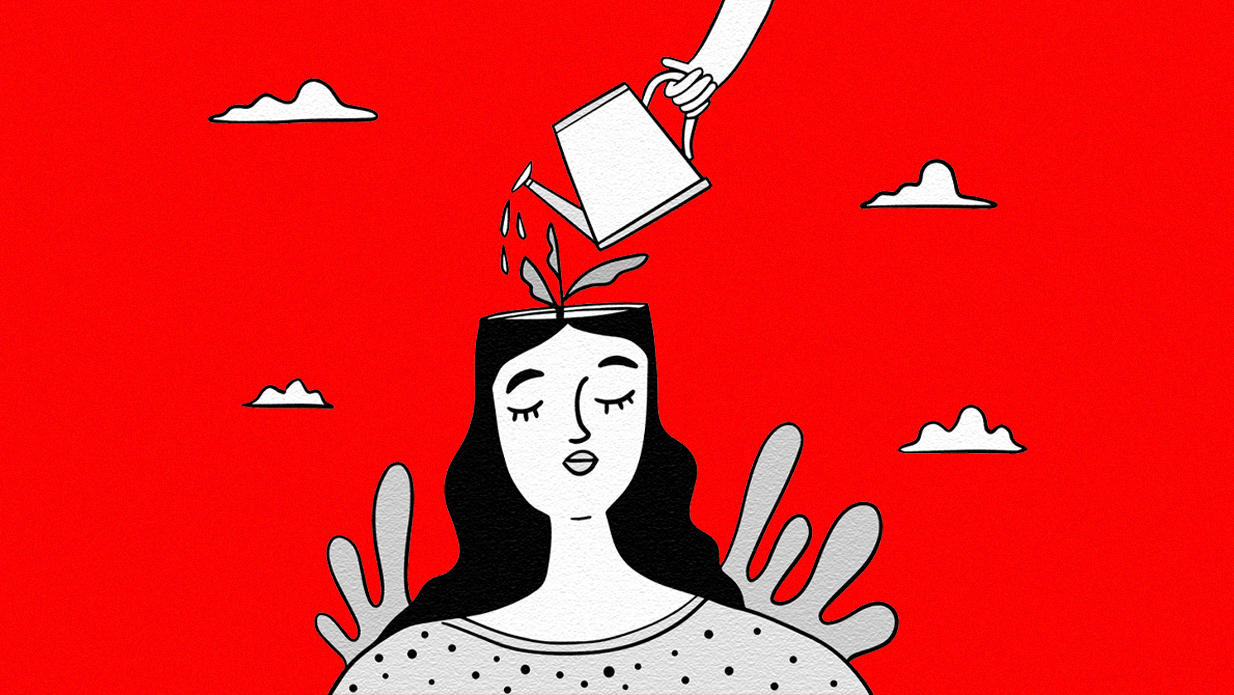Society has become so concerned with labels that some people cannot begin to understand themselves and others without them. It’s easy to slab a stereotype onto anything, and anyone, even if that stereotype does not reflect reality.
People are cast into certain boxes based on how they dress, behave, talk and even what they drink. In the West, Arab Muslims are portrayed as terrorists in the media. In the Arab World, a woman with short, coloured hair, a tattoo or a piercing and some body hair is labelled as a “rebel,” while relationships have to be “on” or “off” but never “in the making” because it’s just easier for everyone else to understand.
Categories provide efficient, albeit often inaccurate, answers for complex questions. Just like there are certain traditions, religions and laws to adopt, these labels have become equally defining in society.
This also applies to mental disorders. Society has made us believe that anyone who is a bit sad, a bit tired and a bit anxious is depressed. We’ve even Arabized the label and use it left and right. But depression is not what we commonly see on TV or hear about among friends and family.
Not so simple: Stereotyping mental disorders
“It has become a widespread narrative to say we are depressed or have OCD when we experience feelings of sadness or like organisation/neatness,” said Maya Sasso, a clinical psychologist.
In the Lebanese context, many people have been experiencing or exhibiting certain behaviors that indicate “grief for lost loved ones or grief for future plans, hopes and dreams. Grief for the country as you have once known it and for what you may have hoped for it to become.”
While these symptoms may be due to disorders, people are quick to judge that it’s depression, anxiety or post-traumatic stress disorder without considering that it might be an array of other disorders, or un-related to disorders at all. After all, with the economic crisis, the pandemic and the regional situation, it’s only normal to feel certain emotions.
In the media, particularly through movies and series, certain mental illnesses are talked about more than others. These mental illnesses are also portrayed weakly, which makes it easier for the viewers to self-diagnose based on what they have seen the characters go through.
Rarely do we hear about, or see, characters with Borderline Personality Disorder, Schizophrenia, Burnout, Cyclothymia or Postpartum disorders. It’s almost always depression, portrayed through waking up at noon, immense sadness and sometimes, suicidal thoughts. And almost always, these characters are seen taking pills or abusing alcohol.
Such portrayal makes it easier for viewers to apply these symptoms to themselves and believe they should fit into the “depression” box. In reality, it could be a completely different type of disorder, or nothing at all.
Not everyone who is exhausted, agitated and down is depressed. These could also be signs of burnout and they could also be reactions triggered by our surroundings. Similarly, this means that not everyone who has mood swings is bipolar –they could be cyclothymic or they could also be experiencing normal mood swings as a reaction to life’s everyday stressors.
“So basically, it is normal and possible to experience mood swings and not be diagnosed with bipolar or a personality disorder, but rather the individual could benefit from therapy,” said the clinical psychologist.
Expert help: The nuances of mental health
Mental disorders should be diagnosed by a professional mental health provider, as some people might be experiencing symptoms but not suffering from a disorder and others might be suffering from a disorder unrelated to their initial thoughts.
We are familiar with some disorders more than others because they are talked about among friends, family and in the media. But that doesn’t mean that what one person is going through has to be labelled as this or that. It can be an array of things, or nothing at all.
According to Sasso, it’s important to bear in mind that every person is different based on their backgrounds as well as the divergent contexts they live in. Through tools such as talk therapy, a solid diagnosis can be reached to help both the patient and the doctor identify what the former needs moving forward.
“Over the past few years, we have witnessed a rise in mental health awareness here in Lebanon as differing individuals and institutions have shared their work through various platforms and outlets,” said Sasso. “We have specifically seen a rise in mental health discussions and awareness (globally and locally) once COVID-19 started and we went into lockdown.”
And while this rings true, more intricate awareness is needed in Lebanon. The “taboo” label has to be lifted off of seeking professional help, but it remains for many reasons –including the refusal to admit to the “weakness” that is associated with any form of mental, emotional or psychological struggle.
“An individual may undertake therapy in order to work on understanding themselves and others, learn ways to manage their emotions, develop healthy coping mechanisms, challenge negative thinking patterns, and benefit from personal growth and healing” said Maya.
The general public needs to be aware that not only diagnosed people can resort to therapy and that going to therapy does not necessarily mean that something is majorly wrong.
“Therapy may also function as a safe, and non-judgemental space to vent and seek validation for an individual that is not experiencing a disorder. Therapy can be used to manage daily stress,” said Sasso, reiterating the importance of therapy as a gateway to understanding feelings and learning how to manage them.
The takeaway here is that individuals, organisations and institutions alike should recognise mental health, educate themselves and those around them and seek help when it’s needed. Labelling certain symptoms as one disorder will not reap benefits, but therapy might.


